PI: James W. Swan
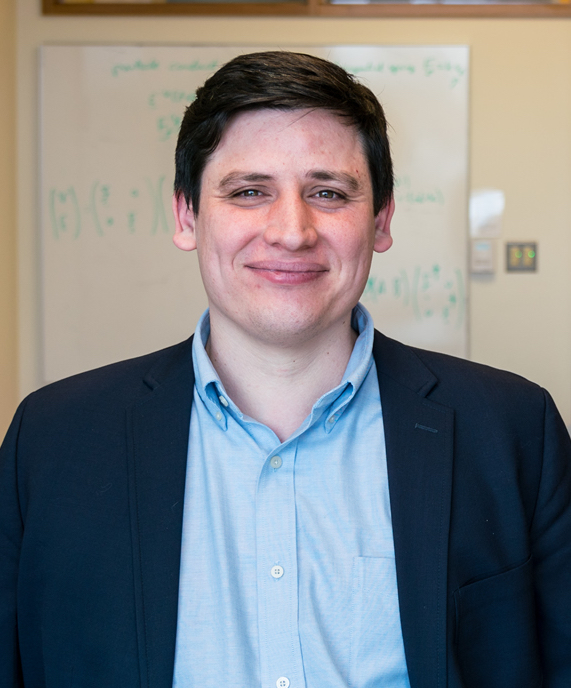 Dr. James W. Swan is an assistant professor
in the Department of Chemical Engineering at MIT. He focuses on how microstructured, in particular nano-particle, materials can be manipulated for the
benefit of society. His research on soft matter is broad and has included accurate measurement of biophysical forces
and the self-assembly nano-particles in microgravity. Dr. Swan aims to combine theory and simulation to model the fluid mechanics and out-of-equilibrium statistical physics that are fundamental to complex fluids
and other soft matter. His research has industrial sponsors (Shell, Genentech, Saudi Aramco) as well as sponsorship through the federal government (NSF). He earned NSF Career and an ACS PRF Doctoroal New Investigator awards in 2016.
Dr. James W. Swan is an assistant professor
in the Department of Chemical Engineering at MIT. He focuses on how microstructured, in particular nano-particle, materials can be manipulated for the
benefit of society. His research on soft matter is broad and has included accurate measurement of biophysical forces
and the self-assembly nano-particles in microgravity. Dr. Swan aims to combine theory and simulation to model the fluid mechanics and out-of-equilibrium statistical physics that are fundamental to complex fluids
and other soft matter. His research has industrial sponsors (Shell, Genentech, Saudi Aramco) as well as sponsorship through the federal government (NSF). He earned NSF Career and an ACS PRF Doctoroal New Investigator awards in 2016.
James Swan received a BS in Chemical Engineering in 2004 from the University of Arizona where he worked with Drs. James Baygents and Raymond Goldstein on issues related to spatio-temporal pattern formation in diffusing and reacting systems. He earned a Masters degree in 2007 and a Ph. D. in 2010 in Chemical Engineering from the California Institue of Technology. His thesis work, under the supervision of Dr. John Brady, focused on low Reynolds number fluid mechanics and the role of macroscopic boundaries in hindering the dynamics of suspended micro-scale objects. This work led to important conclusions about the flow of complex fluids in confinement. Following this, he worked in the laboratory of Dr. Eric Furst at the Department of Chemical and Biomolecular Engineering at the University of Delaware directing experimental investigations of nano-particle self-assembly performed on the International Space Station by astronauts Sunita Williams, Kevin Ford and Chris Hadfield. He has been an assistant professor of Chemical Engineering at MIT since September 2013.
Dr. Swan's CV is available here.
Postdocs
Madhu Venkata Rama Krishna Majji
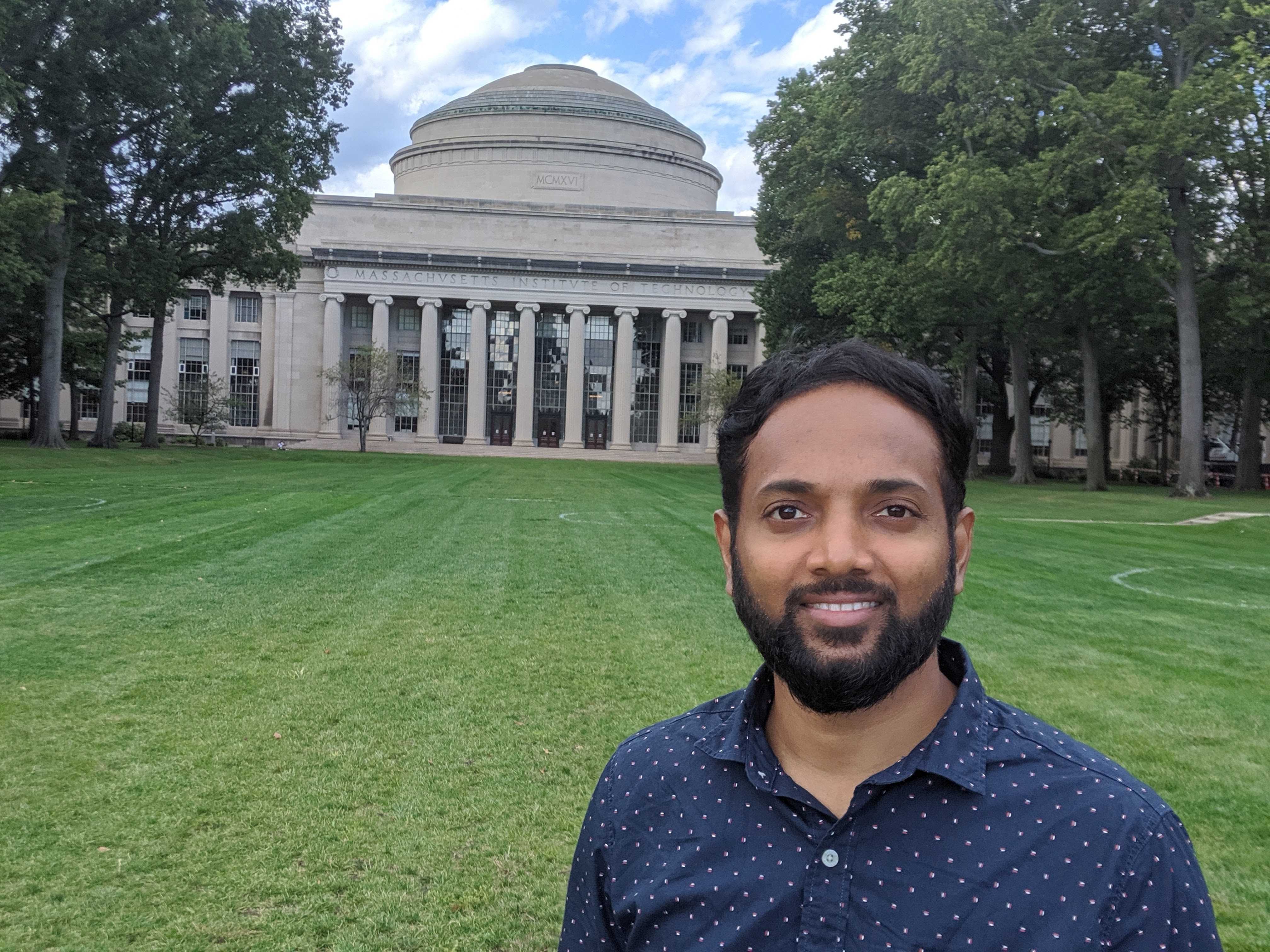 Madhu received his Ph.D. in Chemical Engineering from The City College of New York in 2017 where he studied the dynamics of fluid-particle suspensions in inertial flows under the advice of Professor Jeffrey Morris. Before coming to MIT, he worked as a postdoctoral scholar in Professor Eric Shaqfeh’s group at Stanford University where he studied the deposition of inhaled particles (to simulate aerosols and viruses) in the airways of humans and primates. He joined as a Postdoctoral Associate in Professor James Swan’s group at MIT in 2019 and focused his research efforts on the microstructure and rheology of rough suspensions and colloidal gels under shear flow. His current work focuses on integrating complex fluids and electrochemical engineering to develop suspension electrolytes for redox flow batteries. [Contact at madhuvr@mit.edu ]
Madhu received his Ph.D. in Chemical Engineering from The City College of New York in 2017 where he studied the dynamics of fluid-particle suspensions in inertial flows under the advice of Professor Jeffrey Morris. Before coming to MIT, he worked as a postdoctoral scholar in Professor Eric Shaqfeh’s group at Stanford University where he studied the deposition of inhaled particles (to simulate aerosols and viruses) in the airways of humans and primates. He joined as a Postdoctoral Associate in Professor James Swan’s group at MIT in 2019 and focused his research efforts on the microstructure and rheology of rough suspensions and colloidal gels under shear flow. His current work focuses on integrating complex fluids and electrochemical engineering to develop suspension electrolytes for redox flow batteries. [Contact at madhuvr@mit.edu ]
Graduate students
Eliza Price
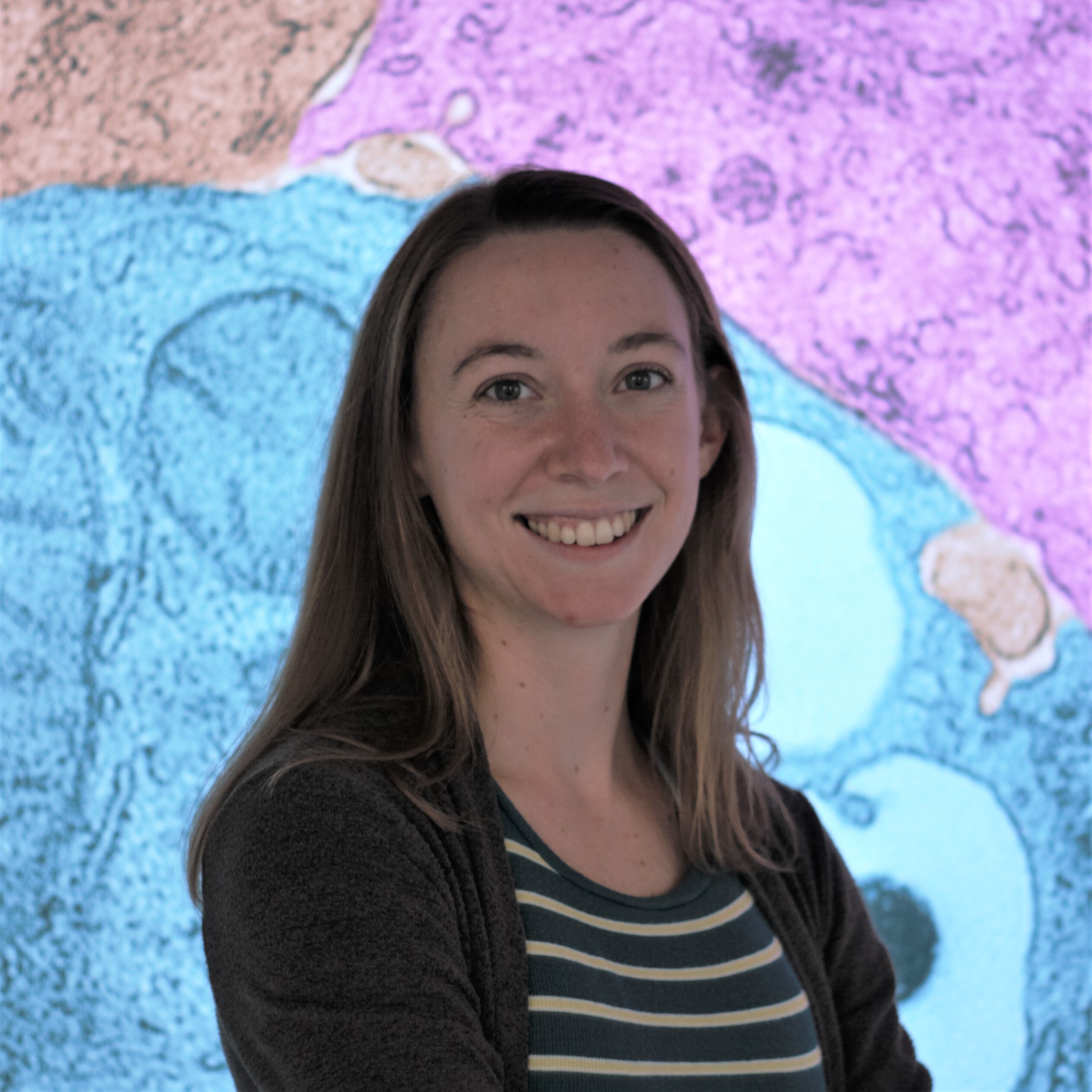 Eliza joined the group in August 2021 as a PhD student in Chemical Engineering. She is originally from Denton, TX and graduated from Texas A&M University in 2020 with a B.S. in Chemical Engineering and a minor in Materials Science and Engineering. Eliza worked in Professor Micah Green’s lab for three years while studying at A&M, investigating scalable functionalization methods of Graphene Oxide. She also worked as a co-op at Marathon Petroleum Corporation and Baker Engineering and Risk Consultants. Eliza is co-advised by Professor William Tisdale in Chemical Engineering and is a recipient of a National Science Foundation Graduate Research Fellowship. Her current work focuses on the self-assembly of colloidal quantum dot superlattices.
Eliza joined the group in August 2021 as a PhD student in Chemical Engineering. She is originally from Denton, TX and graduated from Texas A&M University in 2020 with a B.S. in Chemical Engineering and a minor in Materials Science and Engineering. Eliza worked in Professor Micah Green’s lab for three years while studying at A&M, investigating scalable functionalization methods of Graphene Oxide. She also worked as a co-op at Marathon Petroleum Corporation and Baker Engineering and Risk Consultants. Eliza is co-advised by Professor William Tisdale in Chemical Engineering and is a recipient of a National Science Foundation Graduate Research Fellowship. Her current work focuses on the self-assembly of colloidal quantum dot superlattices.
Nick Matteucci
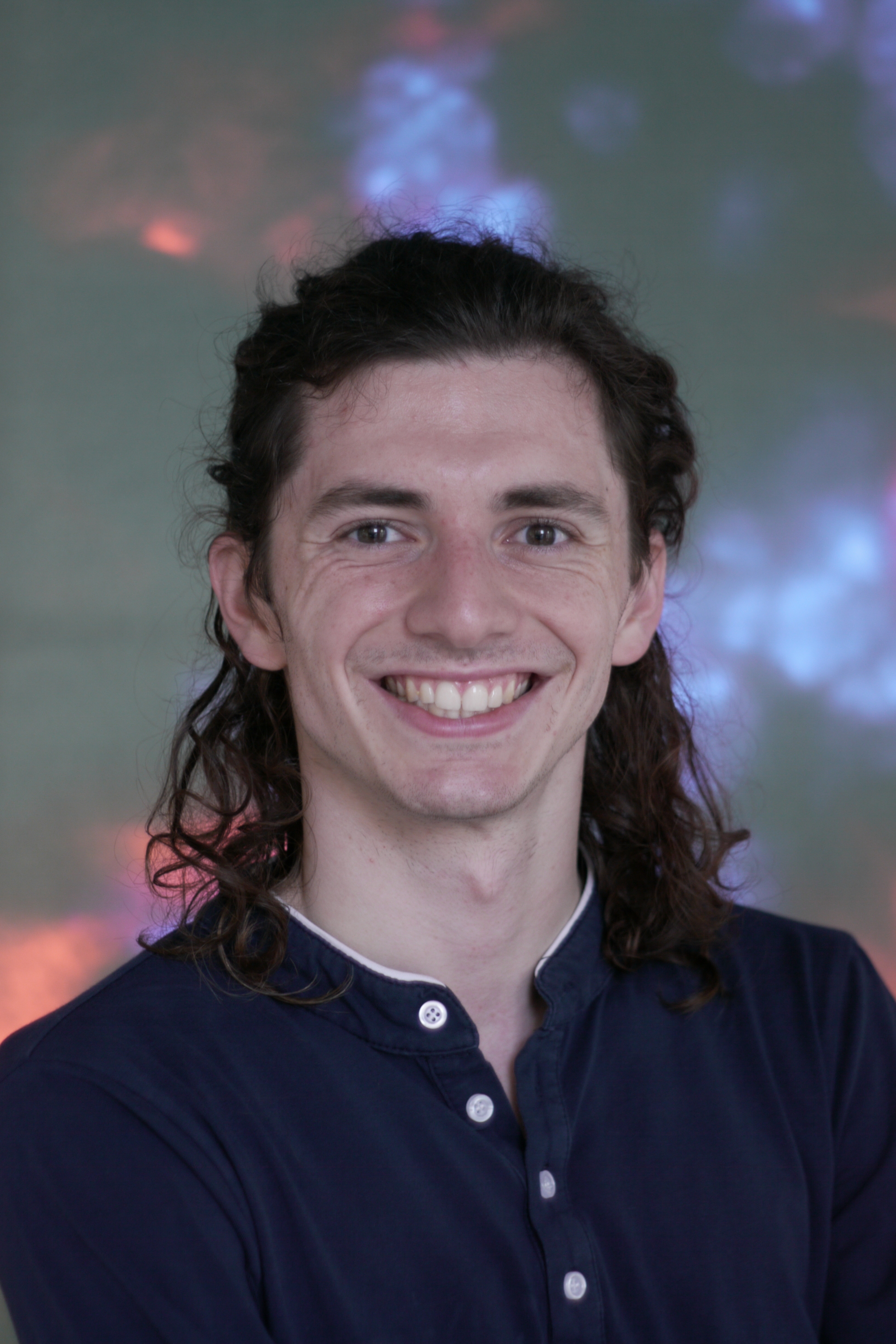 Nick obtained his B.S in Chemical Engineering from Washington University in St. Louis in 2020. As an undergraduate, he initially researched functionalized carbon nanomaterials for water filtration membranes before transitioning to conduct experiments and develop models for dual-ion batteries under Professor Peng Bai. Co-advised by Professor Brushett and Professor Swan, Nick investigates how complex fluids can be applied to flow battery systems. He is supported by a National Science Foundation Graduate Research Fellowship.
Nick obtained his B.S in Chemical Engineering from Washington University in St. Louis in 2020. As an undergraduate, he initially researched functionalized carbon nanomaterials for water filtration membranes before transitioning to conduct experiments and develop models for dual-ion batteries under Professor Peng Bai. Co-advised by Professor Brushett and Professor Swan, Nick investigates how complex fluids can be applied to flow battery systems. He is supported by a National Science Foundation Graduate Research Fellowship.
Mary Agnes Joens
 Mary Agnes graduated from UMass Lowell in 2019 with a BSE in Chemical Engineering and a BS in Mathematics. At UML, she worked with Professor Zhiyong Gu on synthesis and characterization of bimetallic alloy nanostructures for applications in electronics and sensing. She also worked with Professor Robert Parker at the University of Pittsburgh on mechanistic modeling of water and ion transport in airway epithelium. She joined the Swan group in 2020 and is currently studying time-dependent movements of solid objects in non-Newtonian fluids and how a greater analytical understanding of such movements can be used to better understand novel methods of rheological characterization.
Mary Agnes graduated from UMass Lowell in 2019 with a BSE in Chemical Engineering and a BS in Mathematics. At UML, she worked with Professor Zhiyong Gu on synthesis and characterization of bimetallic alloy nanostructures for applications in electronics and sensing. She also worked with Professor Robert Parker at the University of Pittsburgh on mechanistic modeling of water and ion transport in airway epithelium. She joined the Swan group in 2020 and is currently studying time-dependent movements of solid objects in non-Newtonian fluids and how a greater analytical understanding of such movements can be used to better understand novel methods of rheological characterization.
William Funkenbusch
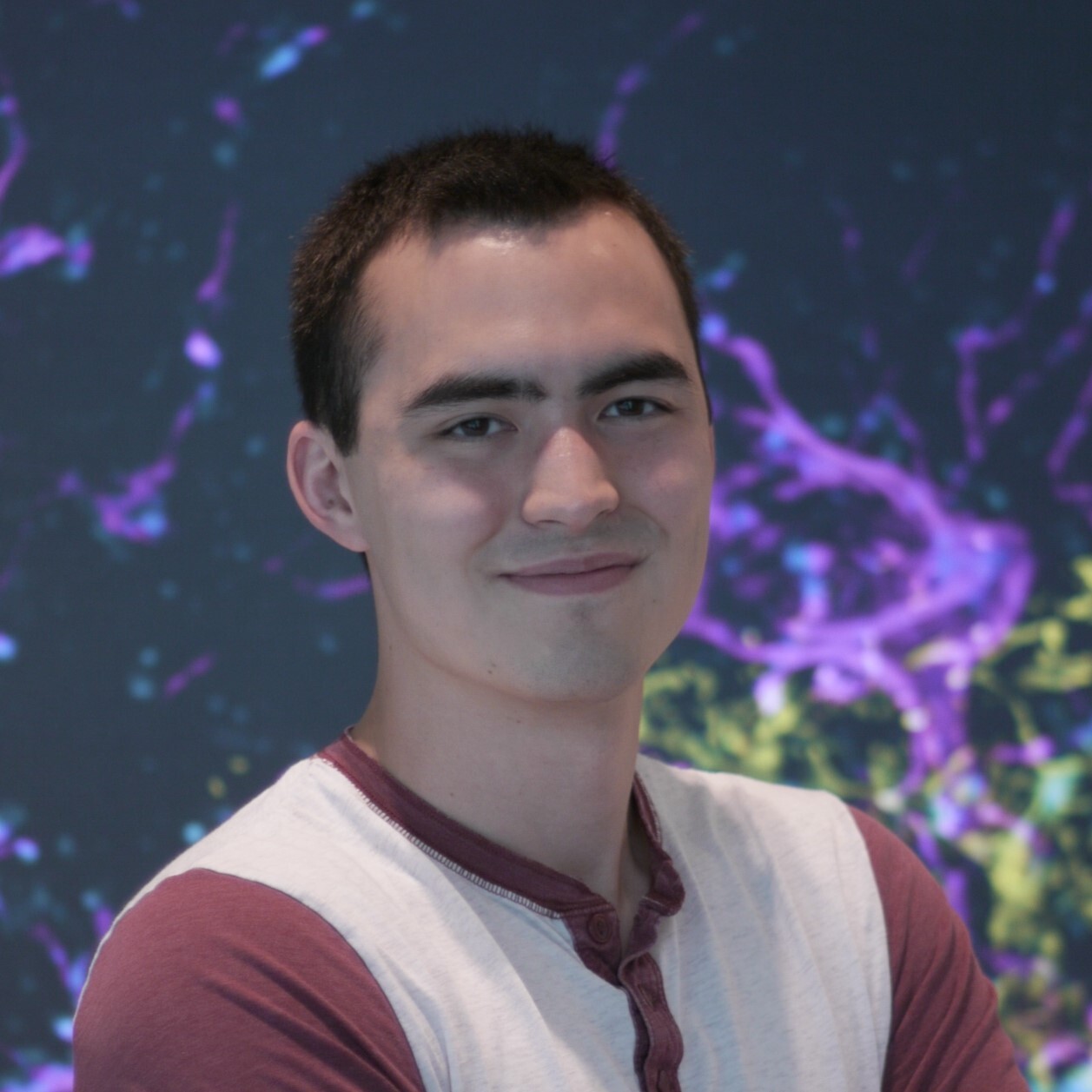 William is a PhD student in Chemical Engineering and joined the group in Spring 2020. He received his BS in Chemical Engineering from University of Rochester. In the Swan group, Will is interested in modifying physical properties of single sheets. Sheets in fluids typically maintain a flat configuration, which can cause stacking or clogging. By perforating a sheet, it might be possible to induce a crumpled phase which would avoid these issues while maintaining the same chemistry. I hope to characterize this transition to optimize shape and density of these perforations.
William is a PhD student in Chemical Engineering and joined the group in Spring 2020. He received his BS in Chemical Engineering from University of Rochester. In the Swan group, Will is interested in modifying physical properties of single sheets. Sheets in fluids typically maintain a flat configuration, which can cause stacking or clogging. By perforating a sheet, it might be possible to induce a crumpled phase which would avoid these issues while maintaining the same chemistry. I hope to characterize this transition to optimize shape and density of these perforations.
Kelsey Reed
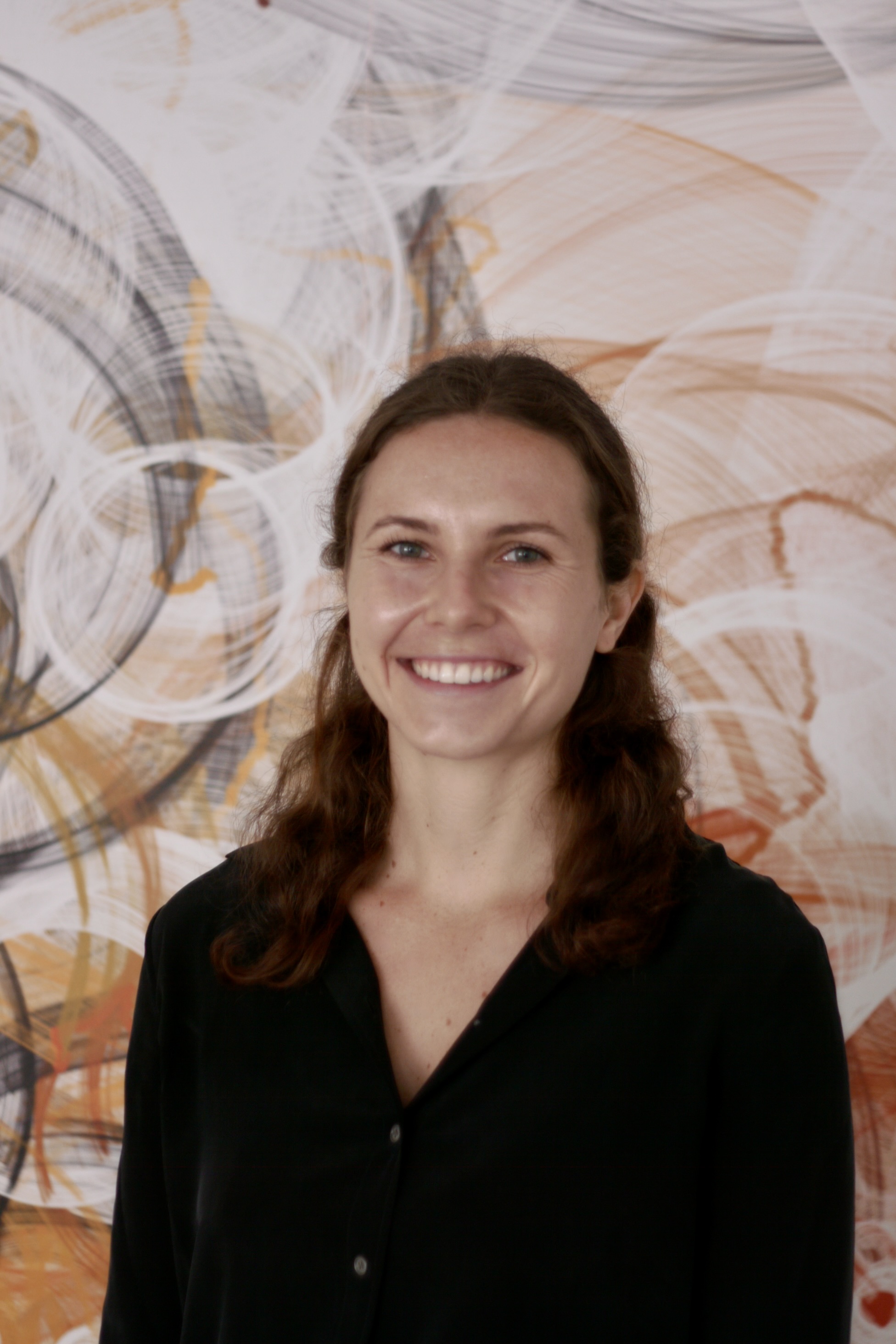 Kelsey is a PhD student in Chemical Engineering and joined the group in Spring 2019. She received her BS in Chemical Engineering from Columbia University in 2018 where she worked with Professor V. Faye McNeill on the modeling of atmospheric aerosol chemistry in highly polluted cities such as Beijing. In the Swan group, Kelsey uses theory and simulations to study the self-assembly of nano emulsions in external fields. She is interested in understanding how the large scale material properties of these systems are affected by changes in the underlying microstructure. Better understanding of this could aid in the design of new materials with specific mechanical properties.
Kelsey is a PhD student in Chemical Engineering and joined the group in Spring 2019. She received her BS in Chemical Engineering from Columbia University in 2018 where she worked with Professor V. Faye McNeill on the modeling of atmospheric aerosol chemistry in highly polluted cities such as Beijing. In the Swan group, Kelsey uses theory and simulations to study the self-assembly of nano emulsions in external fields. She is interested in understanding how the large scale material properties of these systems are affected by changes in the underlying microstructure. Better understanding of this could aid in the design of new materials with specific mechanical properties.
Kyle Lennon
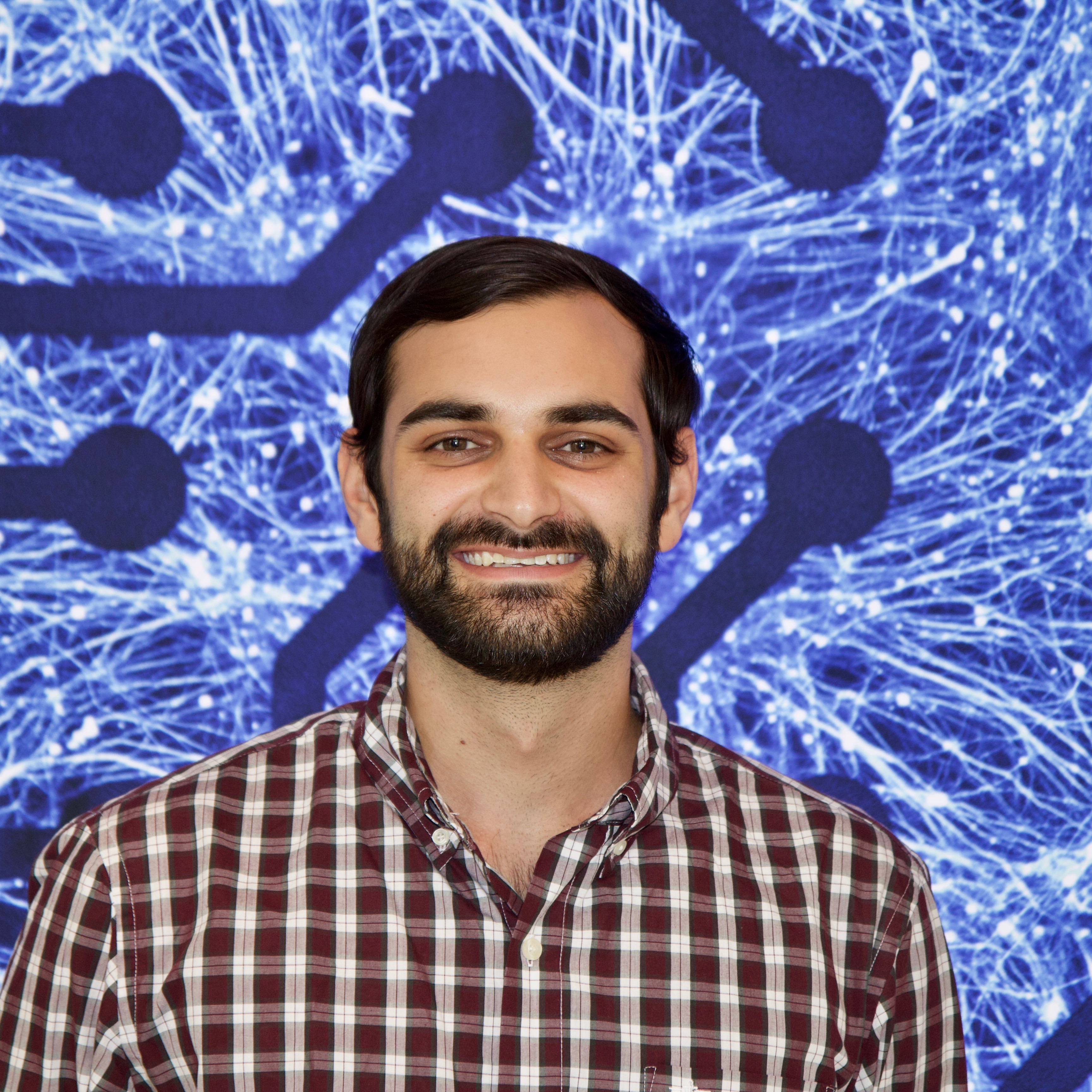 Kyle graduated from the University of Delaware in 2018 with a BChE in Chemical and Biomolecular Engineering and a BA in Physics. At UD, he worked with Prof. Juejun Hu to simulate the performance of microresonators for on-chip optical isolation. In his junior year he began working with Prof. Matthew Doty, where he conducted photoluminescence experiments and developed software to investigate the quantum yield of upconverting colloidal quantum dot nanoparticles. Kyle is currently working to develop a general framework describing the weak nonlinearities in the relationship between stress and strain in viscoelastic materials. He plans to use this framework to design efficient and highly informative experimental protocols for rheological testing, and to deploy data-driven solutions to problems such as material classification and fault diagnosis.
Kyle graduated from the University of Delaware in 2018 with a BChE in Chemical and Biomolecular Engineering and a BA in Physics. At UD, he worked with Prof. Juejun Hu to simulate the performance of microresonators for on-chip optical isolation. In his junior year he began working with Prof. Matthew Doty, where he conducted photoluminescence experiments and developed software to investigate the quantum yield of upconverting colloidal quantum dot nanoparticles. Kyle is currently working to develop a general framework describing the weak nonlinearities in the relationship between stress and strain in viscoelastic materials. He plans to use this framework to design efficient and highly informative experimental protocols for rheological testing, and to deploy data-driven solutions to problems such as material classification and fault diagnosis.
Emily Krucker
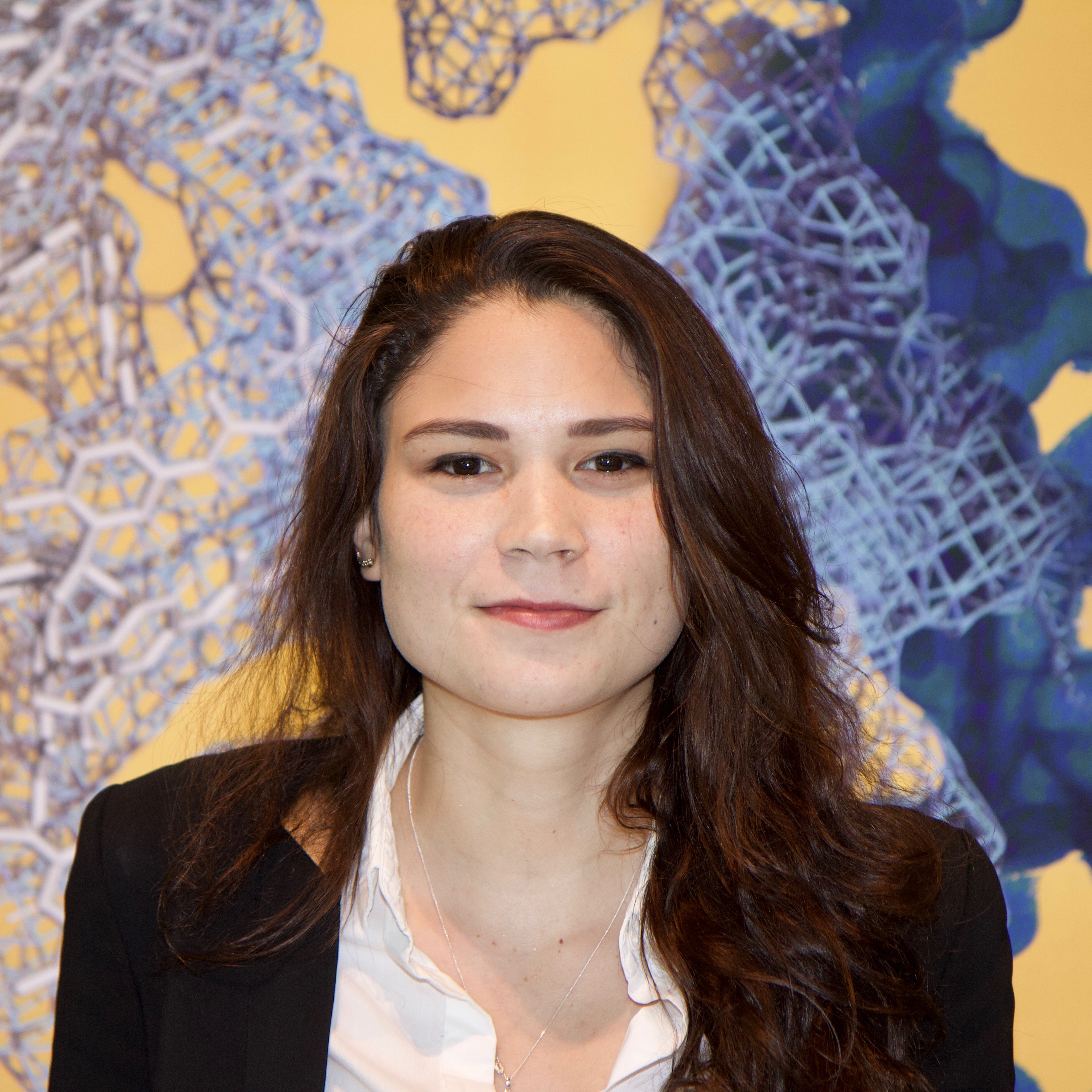 Emily graduated from University of Guadalajara with a Bachelors degree in Chemical Engineering in 2017. During her studies, she worked with Prof. Roberto Flores-Moreno parallelizing programs for efficient DFT calculations. Emily worked as a Research Engineer at Interlub Group, where she focused on the rheology of complex fluids and designing and optimizing their industrial process. She has also studied the behavior of stiff polymers under shear flow using experimental and computational methods with Prof Alexander-Katz to better understand their rheological properties. In 2019 she joined the Swan Group and is currently studying the dynamics of electromagnetic driven phenomena in colloidal systems.
Emily graduated from University of Guadalajara with a Bachelors degree in Chemical Engineering in 2017. During her studies, she worked with Prof. Roberto Flores-Moreno parallelizing programs for efficient DFT calculations. Emily worked as a Research Engineer at Interlub Group, where she focused on the rheology of complex fluids and designing and optimizing their industrial process. She has also studied the behavior of stiff polymers under shear flow using experimental and computational methods with Prof Alexander-Katz to better understand their rheological properties. In 2019 she joined the Swan Group and is currently studying the dynamics of electromagnetic driven phenomena in colloidal systems.
Alumni
Gerald Wang
Postdoctoral scholar 2018-2019. Present position: Assistant professor, Carnegie Mellon University, Civil Engineering
Sumedh Risbud
Postdoctoral scholar 2014-2015. Present position: Intel Corporation
Abigail Taussig
M.S.CEP 2022, Present position: Materials Engineer II at Form Energy
Kevin Silmore
Ph.D. 2021, From Spheres to Sheets: Colloidal Hydrodynamics, Thermodynamics, and Statistical Inference. Present position: Researcher at Anduril
Samuel Winslow
Ph.D. 2020, thesis: Lead Sulfide Nanocrystal Ligand Structure and its Influence on Superlattice Self-assembly. Present position: Product development lead at Liquiglide
Andrew Fiore
Ph.D. 2019, thesis: Fast Simulation Methods for Soft Matter Hydrodynamics. Present position: Consultant at Veryst
Zachary Sherman
Ph.D. 2019, thesis: Self-Assembly and Dynamics of Colloidal Dispersions in Steady and Time-Varying External Fields. Present position: Postdoctoral scholar U.T. Austin, Chemical Engineering
Gang Wang
Ph.D. 2018, thesis: Rheology of Concentrated Protein Solutions and Attractive Colloidal Dispersions. Present position: Data scientist at Linde Digital/Praxair
Zsigmond Varga
Ph.D. 2018, thesis: Improved Models of Colloidal Gels: Kinetic Arrest, Relaxation Dynamics, Structural Breakdown and the Role of Hydrodynamic Interactions. Present position: Process Development Engineer at ExxonMobil
Qing Xu
M.S. 2016, thesis: Temperature-Responsive Polymers in Flocculation and Dewatering. Present position: Technical Support Consultant at Aspen Technology
Helen Rosenthal
Kenneth Luo
Jennifer Hofmann
Present position: Graduate student, Stanford University, Chemical Engineering
Dipanjan Ghosh
Present position: Graduate student, University of Minnesota, Chemical Engineering and Materials Science